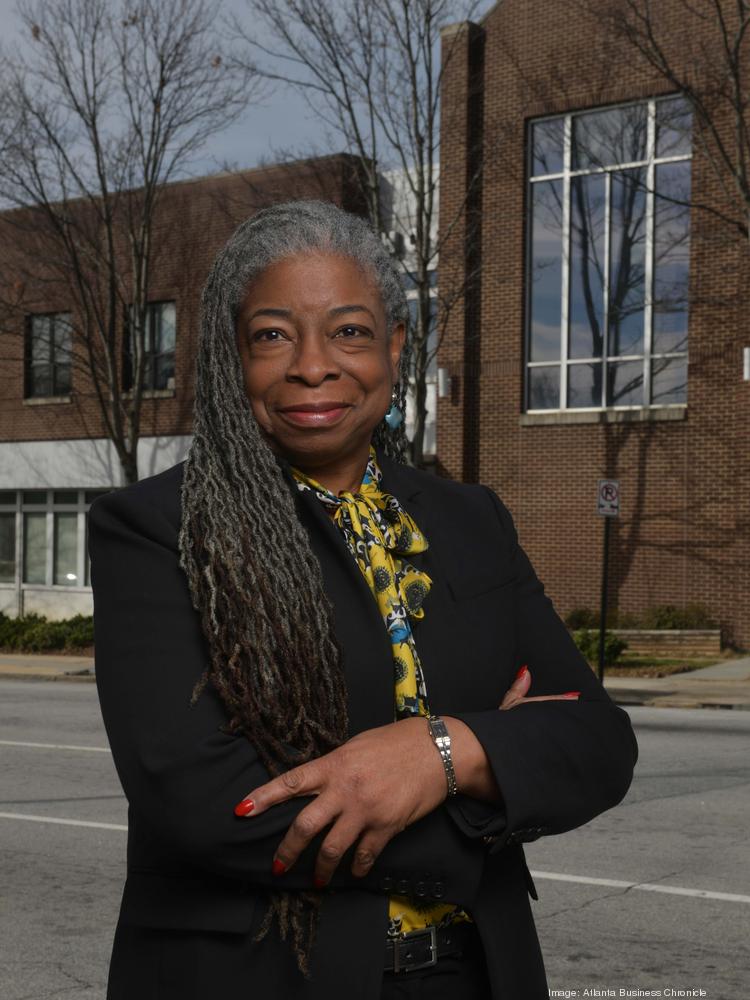Atlanta Chronicle Celebrates CaringWorks
Carol Collard’s career went from working in home-building to home-acquiring.
After earning her master’s degree in social work in 2001, she founded CaringWorks Inc., in 2002, a nonprofit to assist people experiencing chronic homelessness. The organization’s thousands of clients include people with mental illness and substance use disorders, families and veterans.
What led you to your career? I spent the first part of my career working in marketing for a homebuilder in the private sector. After about eight years, I started getting restless, feeling that I needed to be doing something more meaningful. I found a job with a nonprofit developer that created housing for formerly homeless and low-income households. I will always remember a particular day when I took a new tenant on a tour of her new apartment. She walked in and started crying with joy and relief. I was profoundly moved by her reaction, and I was so proud to have had a small role in ending homelessness for her family. It changed my life. My work with that developer led me to pursue degrees in social work and ultimately to launch CaringWorks.
Who was your biggest influence in your career? My mother was the best example that I’ve ever had of living a life of integrity, humility and compassion. I learned from her the importance of sacrifice and being there for others. She lived humbly, as her real wealth was found in the hundreds of grateful strangers, friends and family members that she helped over the years. My parents were immigrants from Honduras. Over the years, our home became temporary lodging for what felt like every newcomer from their hometown. She was the female embodiment of George Bailey from the movie, “It’s a Wonderful Life.” She never did anything with the expectation of getting something in return. She did it because she felt it was the right thing to do. I still aspire to live by her example.
What is the biggest challenge in your career? As with most nonprofit leaders, fundraising is a perennial pursuit. Ending homelessness for our clients means more than just making sure they have a roof over their heads. They also need critical support services to achieve long-term success and ultimately, housing stability. Most of the available resources right now are limited but the needs of our clients are indefinite, so we are in constant connection with government leaders, donors and the philanthropic community to show that supporting us is a more cost-effective option than having homeless individuals cycle in and out of hospitals and jails.
What’s the hardest business lesson you’ve learned? I believe that nonprofits must be equally focused on effectiveness and efficiency, just like any other business. In fact, it may be more crucial because we are stewards of public trust. That said, my hardest lesson was the realization that others in and out of the nonprofit sector may not see things the same way. CaringWorks was created to provide a public benefit, and it is incumbent upon us to provide the care that gets results. When that doesn’t happen, we need to be fearless in finding out why and using that knowledge to be better.
What makes CaringWorks different from other nonprofits that work with the homeless population? In targeting chronically homeless households, CaringWorks provides housing, case management and behavioral health services to the most challenging and costly segment of those who are homeless. The majority of those we serve typically have experienced homelessness for a longer period of time and also are coping with one or more chronic disabling health conditions. Using the analogy of a relay race, the continuum of care for ending homelessness includes the first leg, outreach; the second leg, assessment; and the third leg, placement. CaringWorks is the crucial last leg. We play a role in ending homelessness for good for the households we serve. Our services mean the difference between an individual with mental illness remaining successfully housed in the community or returning to homelessness.
How has the field of social work evolved from the time you studied it to now teaching it? I think the social work profession is returning to its roots. Social work is grounded in the value of social justice. Back when I was a student, there was a disproportionate emphasis on becoming a therapist and having a private practice. Well, while we certainly do need more mental health professionals, that focus seemed to overshadow the profession’s mandate to lead in creating equity and social justice. Now, our collective recognition of the ongoing systemic inequities in our society has drawn more of those individuals who wish to help make a more just society, both through policy and practice. Social work values permeate CaringWorks. We help improve health outcomes through our ASPIRE program, which has never been more important, particularly in the midst of this pandemic.
What can the business community do to support and assist people experiencing homelessness and the organizations that work with them? The business community can help in several meaningful ways. First, as stakeholders in the community, businesses can provide both financial and in-kind donations. Business leaders can also serve on boards and advisory committees, lending expertise and leadership. They have the unique ability to rally employees and customers to join in the effort. Many can connect a wide network of people to the movement of people who are determined to make homelessness rare, brief and nonrecurring. CaringWorks is in the heart of that movement and needs friends that bring experience in healthcare, finance, law, technology, education, human resources, marketing and more. Our philosophy is that, while fundraising is important, “friend-raising” is equally significant and ultimately leads to the sustainability of the organization as well as our ability to fulfill our mission. We have proven that we can end homelessness one person at a time. We also know that we cannot do that alone.
Carol Collard
- Born in: Brooklyn, N.Y.
- Lives in: Decatur
- Age: 62
- Current job: Founder & CEO, CaringWorks, Inc.; associate professor of Social Work, Kennesaw State University
- Previous job: Vice president, resident services, Progressive Redevelopment Inc.
- Education: Doctorate and master’s of social work, University of Georgia; bachelor’s degree in communications, Loyola University of New Orleans
- Family: Divorced; two sons; six grandchildren
- Hobbies: Travel, reading, spending time with grandchildren, “being a bit of a foodie”

